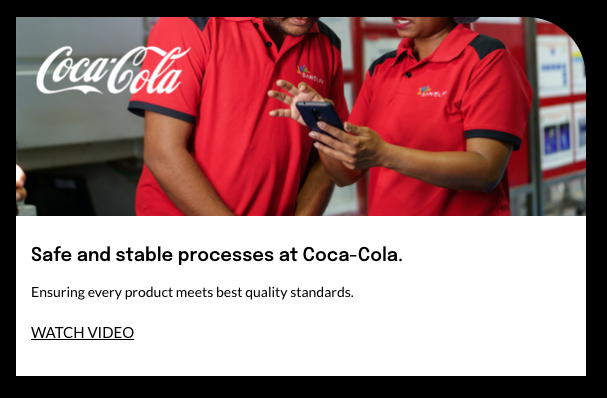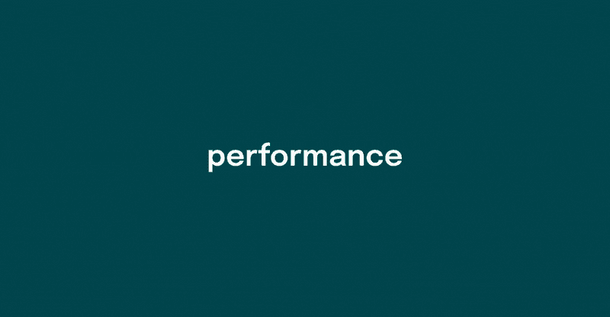Cloud adoption is skyrocketing in manufacturing.
According to a McKinsey survey, 64% of discrete manufacturing companies are actively using the cloud and 60-70% of respondents would consider their company “above average” when it comes to their cloud maturity level.
Industry 4.0 trends support this finding: 86% of manufacturing companies in the U.S. alone believe that smart factories will be their main competitive driver by 2025.
The smart factory is a connected factory and the cloud is the key enabler behind this transformation. But cloud adoption is not just about incorporating edge computing, AI, and IoT.
Empowered frontline employees are also critical to building and sustaining a smart factory.
Let’s explore 3 specific ways cloud solutions for smart manufacturing can increase employee productivity and engagement on the shop floor.
.png?width=500&height=500&name=Manufacturing%20sops%20(1).png)
1. Wearables.
Support in the smart factory is ripe for cloud adoption. Technicians have traveled around the world or across the country to service machinery that's broken. The downside of this is high costs and long waiting times, causing machine downtime for days, sometimes even weeks.
More recently, companies have turned to dedicated remote maintenance and support solutions to conduct repairs and inspections to save time and money.
- During COVID-19, the adoption of remote collaboration tools accelerated by a factor of 43. Companies had to implement changes within 10.5 days, compared to their 454-day expectation.
- These cloud-enabled tools will become essential to power smart factories in the future, especially as companies seek to drive efficiencies in maintenance and knowledge transfer.
- Industrial wearables like RealWear are used to deliver hands-free support and guidance to maintenance teams and operators. Combined with the right software, these wearables make knowledge easy to access and processes more efficient.
SwipeGuide work instructions used on RealWear Navigator 500
2. On-the-job training.
Not much has been said about the need for improved skills management in the age of industry 4.0. Yet, as McKinsey explains, “nearly every job will change” and demand for technological skills - both coding and interacting with technology - is expected to rise by more than 50% over the next decade.
- Companies need to invest significantly in upskilling and reskilling their workforce for smart manufacturing transformations to succeed. Skills management and frontline training are essential for this.
- A solid internal communication strategy is also key to facilitating skills management, especially in diverse and multilingual settings.
- While frontline employees tend to spend up to 3 hours per week looking for information, solutions like Beekeeper can help them find everything they need in one place, often translated into multiple languages.
3. Augmented workforce.
One of the most popular use cases for cloud adoption in smart factories is augmenting workforce efficiency. About 23% of manufacturers surveyed by Deloitte are operationalizing systems designed to increase efficiency on the shop floor.
Cloud-based digital work instructions and standard operating procedures are fundamental to support this.
- Long gone are the days when employees had to leaf through endless paper manuals or clunky PDF files to find work instructions. Today, they can access them from their phone in a dedicated application that includes descriptive steps and visual cues.
- Smartphone manufacturers like Samsung have capitalized on this trend, releasing rugged devices that are optimized for use on the shop floor.
- The beauty of using a cloud-enabled platform is that you are also able to measure frontline performance and collect feedback when employees are doing the work.
- About 80% of improvement ideas come from the frontline. These ideas can be easily implemented into SOPs when you use platforms like SwipeGuide and Rever, which helps you capture Kaizen events and conduct 5S audits.

[Image: Samsung Canada]
Empower employees with cloud-based tools.
The smart factory is a connected factory and the cloud is a key enabler to facilitate this. Start empowering employees with cloud-based tools that provide shareable standards and knowledge capture, and help you elevate performance.
Contact us to build a smart factory with human-centered work instructions.
Want to learn more?
👉 Read our ROI Whitepaper to learn the impact of SwipeGuide.
👉 Make better SOPs with our SOP template.
👉 VIDEO: How Coca-Cola manages safe and stable processes.







